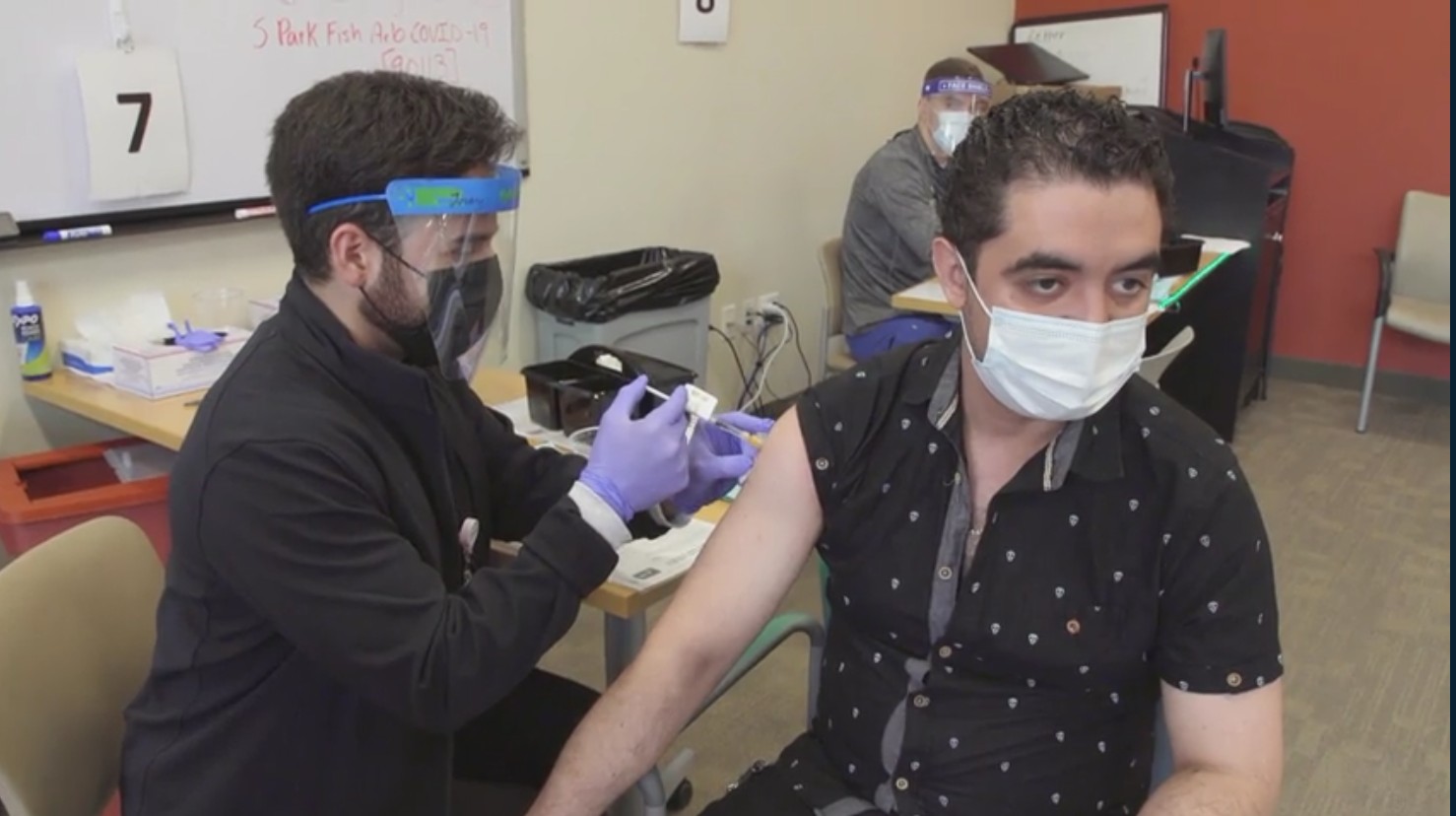
To help equitably vaccinate the public against COVID-19, UW Health is partnering with community organizations serving communities of color for population-specific vaccination clinics, the health system announced Tuesday.
On Monday, the health system partnered with The Wisconsin Latino Chamber of Commerce to vaccinate almost 200 essential workers in Dane County.
“It was extremely successful,” said Shiva Bidar-Sielaff, vice president and chief diversity officer, UW Health.
Bidar-Sielaff said in an interview Tuesday that COVID-19 has disproportionately affected communities of color, and communities of color are least likely to be vaccinated.
“Those two things would tell you that we really have a lot of work to do to really center racial equity and access to vaccine,” she said.
She said barriers include internet access, language issues and work schedules.
“It really is a system that is set up kind of as a first-come first-serve, which really has, in itself, a lot of barriers,” she said. ‘You have to have the time to put in your name in multiple lists, and whenever your name comes up, you need to be available to go for that appointment at whatever time of day.”
Through the Latino Chamber of Commerce, Latinx-owned businesses including restaurants and markets were able to vaccinate their owners and employees. The essential workers received vaccinations at UW Health’s Arboretum Clinic, on South Park Street.
“Our partnership with UW Health is invaluable during this vaccination process,” Wisconsin Latino Chamber of Commerce CEO Jessica Cavazos said in a statement. “Our Latinx-owned businesses have been essential in serving the needs of the community during the pandemic and creating access to vaccines is a moral imperative.”
UW Health will be partnering with many more community groups to hold vaccination clinics in the coming months, Bidar-Sielaff said.
She said the demand for vaccines among the Wisconsin Latino Chamber of Commerce community undermines the narrative that people of color are hesitant to get vaccinated.
“What I’m seeing right now is we’re nowhere close to hesitancy. We have a lot of demand of people who want vaccine and who have not been able to get access to it in communities of color,” she said.
Still, she said people are most likely to be able to get the vaccine through people they know and trust.
“I think that their relationship with community-based organization who have been in the community, who work with the community day in and day out, as the people that kind of create that connection with the vaccine, is really critical,” she said. “They are the ones, they’re the organizations that know how to reach the people who really need that connection, right, that navigation to how to get a vaccine appointment.”
In addition to dedicated vaccine equity clinics, UW Health continues to work in collaboration with Public Health Madison & Dane County and other health systems to provide culturally and linguistically relevant information about COVID-19 vaccines to ensure that our communities of color have access to reliable information and feel empowered to make informed decisions related to vaccination.



